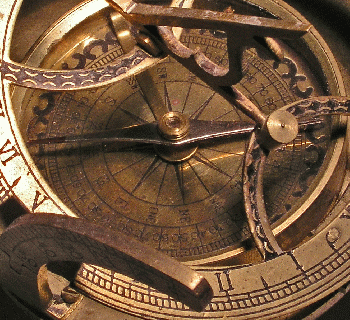In the midst of all of this we need to make some kind of sense of things, so we know how to move on with our lives. We tend to find markers that help us make sense of our world as landmarks to our thinking and our lives. When those central ideas, those landmarks, are challenged we, most often, resist that change. We create logical arguments about why we are right, in order to try to undo the logic of those who are trying to convince us to change our minds. In reality, it is a part of our belief system that is under attack, and to change that part of the system almost feels like giving up on the entire direction of our lives, which we are not likely to do, so we resist that change most vehemently.
I want to suggest that there is also another dynamic that is at work below the surface. We have constructed a belief system to fit our current reality and what seems to be working in our lives. We test it out on a daily basis and, as long as it continues to work for us, we resist any change. If it's not broken, don't fix it.
However, a path to change may come by trying an alternative that seems to be working for other people like us. If we find that the new system works better than the old system, and others also like it, we are more likely to make the change.
Here is the beauty part; when we change one of those central elements, those landmarks, we don't need to justify it logically, we simply find it makes life better for us. We then go about modifying our basic beliefs to fit the new alternative that seems to work better in this changing world. It seems to fit the new realities better than our old one. The old one may have been perfect for us for a time in our lives and for the world at that time, but things changed and so did we and now we have found a better alternative.
Our history is replete with examples of choosing better alternatives to fit changing realities. One example is the shift from analog to digital. We did not need to smash all the analog devices to make the change, or to incarcerate or kill all those who still used the analog devices. People simply saw that the digital devices worked better for them in the modern world. The same was true of the automobile or any other labor-saving devices, as well as many other examples of evolutionary change.
There is no need to say, "I told you so", or to think we have won the logical argument because, in fact, we have simply been pushed to create a real, workable alternative that has moved the entire process forward and have used our energy for a positive purpose rather than spending our time and energy in fruitless discussion and argument, positive rather than simply neutral or negative.
Another example is a method of changing the culture of a corporate office. This is a change in how people perceive of each other and their work environment. There has been a way the office has operated for such a long time that it is accepted as the only way to get work done. If there is a desire to change the culture without confronting those who have been there the longest and are most invested in the old ways (I will call them the curmudgeons), it may take some thinking outside the box.
If some Friday, late afternoon, in a corner of the office, far from the curmudgeons, someone begins to serve cake and coffee to anyone who wants to partake, there will begin to be a new energy, and even laughter in the office. The tone of the office the next week might be slightly changed, friendlier perhaps.
The next Friday the same thing happens, and more people attend with more smiles and laughter and the next week the tone of the office is friendlier and everyone is a bit more productive.
After several weeks one of the curmudgeons is late in joining his group and says that the cake was quite good.
The change has nearly been completed without any confrontation. Instead, people found those Fridays changed the energy of the office in a positive way and chose the new alternative.
So, the conclusion is that continuing those endless logical discussions and even arguments that are often very divisive without getting anywhere but to anger and frustration, may indeed be fruitless. But there is another, and I would suggest, a better way to invite change. (You will notice I used the word "invite" and not "convince".) That way is to simply develop a better alternative to the current way of doing things. If that alternative develops support and begins to offer another, more effective way to deal with life, others will eventually be tempted to try it and may find it suits them better than the old system.
People may still choose not to change, but that takes nothing away from what the positive alternative has accomplished. It was not, after all, about winning that argument with that particular person to show our logic was better; it was about using our creative energy to move life forward in an attempt to deal with a changing world more effectively.
(Note: You can view every article as one long page if you sign up as an Advocate Member, or higher).






